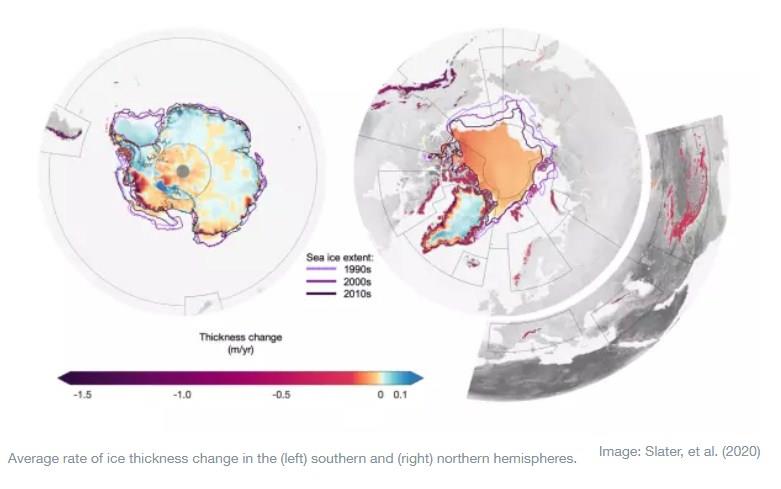by Sophia Ankel*
A "staggering" 28 trillion tonnes of ice has disappeared from the surface of the Earth since 1994, a group of UK scientists has found.
Scientists from Leeds and Edinburgh universities and University College London analyzed satellite surveys of glaciers, mountains, and ice sheets between 1994 and 2017 to identify the impact of global warming. Their review paper was published in the journal Cryosphere Discussions.
Describing the ice loss as "staggering," the group found that melting glaciers and ice sheets could cause sea levels to rise dramatically, possibly reaching a meter (3 feet) by the end of the century.
"To put that in context, every centimeter of sea-level rise means about a million people will be displaced from their low-lying homelands," Professor Andy Shepherd, director of Leeds University’s Center for Polar Observation and Modelling, told the Guardian.

The dramatic loss of ice could have other severe consequences, including major disruption to the biological health of Arctic and Antarctic waters and reducing the planet’s ability to reflect solar radiation back into space.
The findings match the worst-case-scenario predictions outlined by the United Nation’s Intergovernmental Panel on Climate Change (IPCC), the scientists have confirmed.
"In the past researchers have studied individual areas – such as the Antarctic or Greenland – where ice is melting. But this is the first time anyone has looked at all the ice that is disappearing from the entire planet," said Shepherd, according to the Guardian. "What we have found has stunned us."
"There can be little doubt that the vast majority of Earth’s ice loss is a direct consequence of climate warming," the group wrote.
The findings come a week after researchers at Ohio State University discovered that Greenland’s ice sheet might have passed a point of no return.
According to the researchers, snowfall that replenishes the country’s glaciers each year can no longer keep up with the pace of ice melt, which means that the Greenland ice sheet will continue to lose ice even if global temperatures stop rising.
The Greenland ice sheet is the world’s second-largest ice body.
"What we’ve found is that the ice that’s discharging into the ocean is far surpassing the snow that’s accumulating on the surface of the ice sheet," Michalea King, lead author and researcher at Ohio State University’s Byrd Polar and Climate Research Center, said in a press release.
According to a NASA study, 2010-2019 was the hottest decade ever recorded.
*Weekend News Reporter , Business Insider
**first published in: www.weforum.org




 By: N. Peter Kramer
By: N. Peter Kramer

